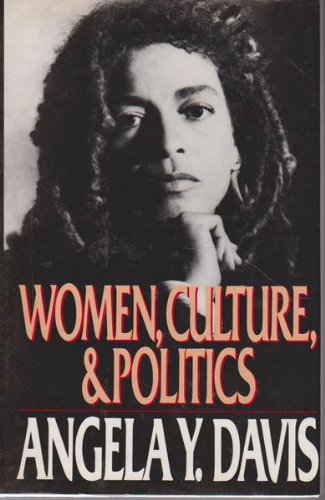

I really am glad I finally got around to reading this. She was twice a candidate for Vice President on the Communist Party USA ticket during the 1980s. She was tried and acquitted of suspected involvement in the Soledad brothers' August 1970 abduction and murder of Judge Harold Haley in Marin County, California. Her membership in the Communist Party led to Ronald Reagan's request in 1969 to have her barred from teaching at any university in the State of California. Her research interests are in feminism, African American studies, critical theory, Marxism, popular music, social consciousness, and the philosophy and history of punishment and prisons. She is a retired professor with the History of Consciousness Department at the University of California, Santa Cruz, and is the former director of the university's Feminist Studies department.

Prisoner rights have been among her continuing interests she is the founder of Critical Resistance, an organization working to abolish the prison-industrial complex. She emerged as a nationally prominent activist and radical in the 1960s, as a leader of the Communist Party USA, and had close relations with the Black Panther Party through her involvement in the Civil Rights Movement despite never being an official member of the party. Davis shows readers how the inequalities between Black and white women influence the contemporary issues of rape, reproductive freedom, housework and child care in this bold and indispensable work.Īngela Yvonne Davis is an American political activist, scholar, and author. Here, Davis not only contextualizes the legacy and pitfalls of civil and women's rights activists, but also discusses Communist women, the murder of Emmitt Till, and Margaret Sanger's racism. While Black women were aided by some activists like Sarah and Angelina Grimke and the suffrage cause found unwavering support in Frederick Douglass, many women played on the fears of white supremacists for political gain rather than take an intersectional approach to liberation. She should be heard." - The New York TimesĪngela Davis provides a powerful history of the social and political influence of whiteness and elitism in feminism, from abolitionist days to the present, and demonstrates how the racist and classist biases of its leaders inevitably hampered any collective ambitions. "Angela Davis is herself a woman of undeniable courage. From one of our most important scholars and civil rights activist icon, a powerful study of the women’s liberation movement and the tangled knot of oppression facing Black women.


 0 kommentar(er)
0 kommentar(er)
